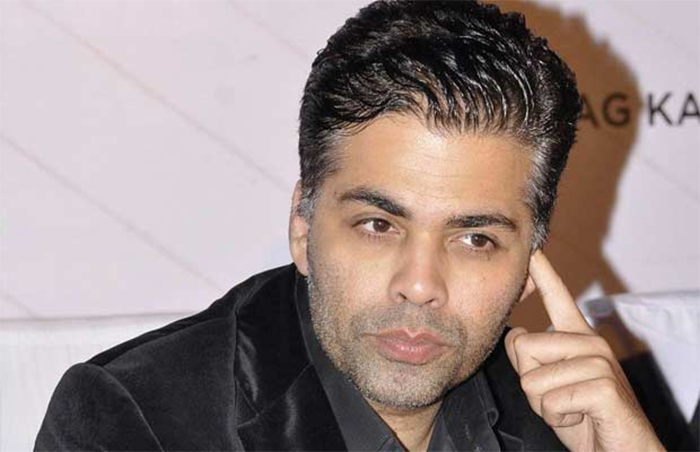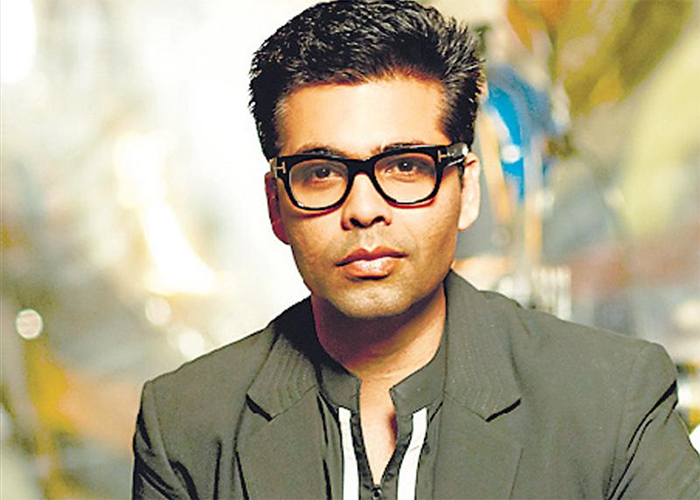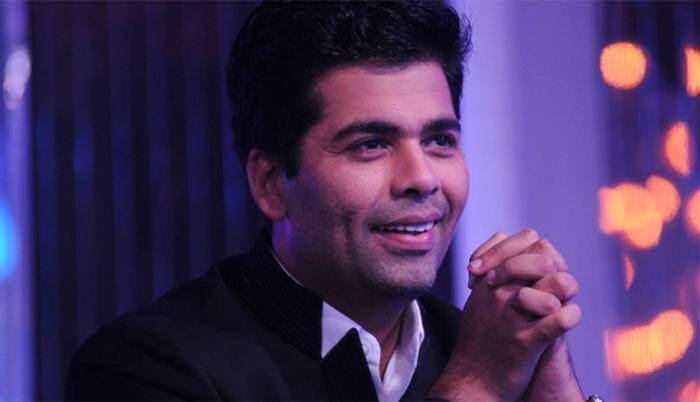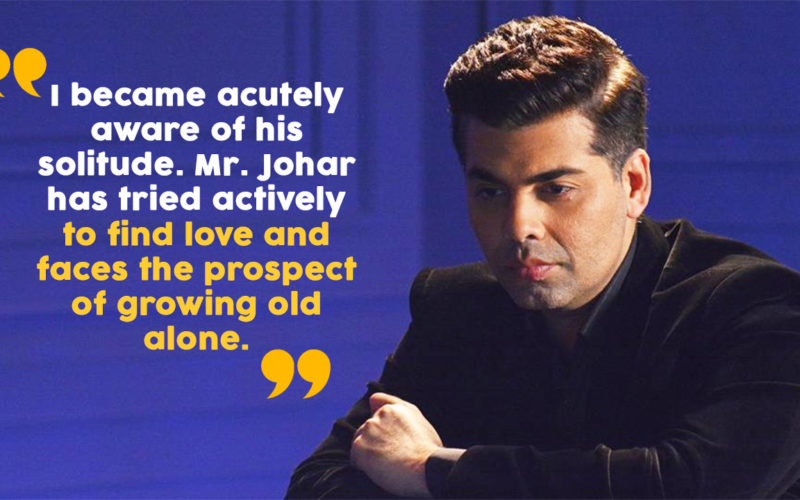- 1.0Kshares
- Share
- Tweet
- Facebook Messenger
Karan Johar ‘The Unsuitable Boy’ of tinsel-town is the biggest newsmaker and filmmaker in Bollywood film fraternity. His candour and quirk are a combo that make him super-entertaining. He might’ve never uttered out loud that he’s gay, but succinctly said it all.
According to a New York Times op-ed by Aatish Taseer, Karan — the most ubiquitous man in Bollywood — is said to be ‘the man who let India out of the closet’.

K’Jo has a massive fan-base and is a self-professed maker of “popcorn, bubble gum and frivolity” cinema. But more than his films, Karan’s sexual orientation always piqued interests among Indians. The writer pens,

Aatish further writes,

It is kind of impossible not to see Mr. Johar against the background of the Indian society. The Supreme Court reinstated Section 377 of the Indian Penal Code, which places homosexuality, alongside bestiality, as “against the order of nature.”
But, Karan never said those three words out loud and got thrashed by the gay community. He’s also accused of stereotyping them on the celluloid.
“He is not popular among activists and the intelligentsia. They accuse him of reducing gay characters to effeminate parodies.”

Apurva Asrani, the script writer of ‘Aligarh’, wrote in The Wire: “Sadly Karan’s public image reeks of the very same gay stereotyping that Bollywood infamously propagates — the frustrated sexual predator, the comic relief, the closeted ‘butt of all jokes.”
He pinpoints how Karan is far more subversive than his critics admit and how he’s introduced the idea of homosexuality by stealth into the Indian home as he knows the limitations of his family audience. Citing an anecdote, Aatish writes,

Karan told Mr Taseer that no major actor was willing to play the role Fawad Khan played in ‘Kapoor & Sons’.

“I went to eight or nine stars and they all said that if the character is gay in the end, then no.”
At a recent party, at Karan’s place, Aatish observed the producer closely,

The article ends by pointing that Karan ‘may not have uttered the three magic words, but his life and his work are a portrait in courage’.
News Source: The New York Times
- 1.0Kshares
- Share
- Tweet
- Facebook Messenger




